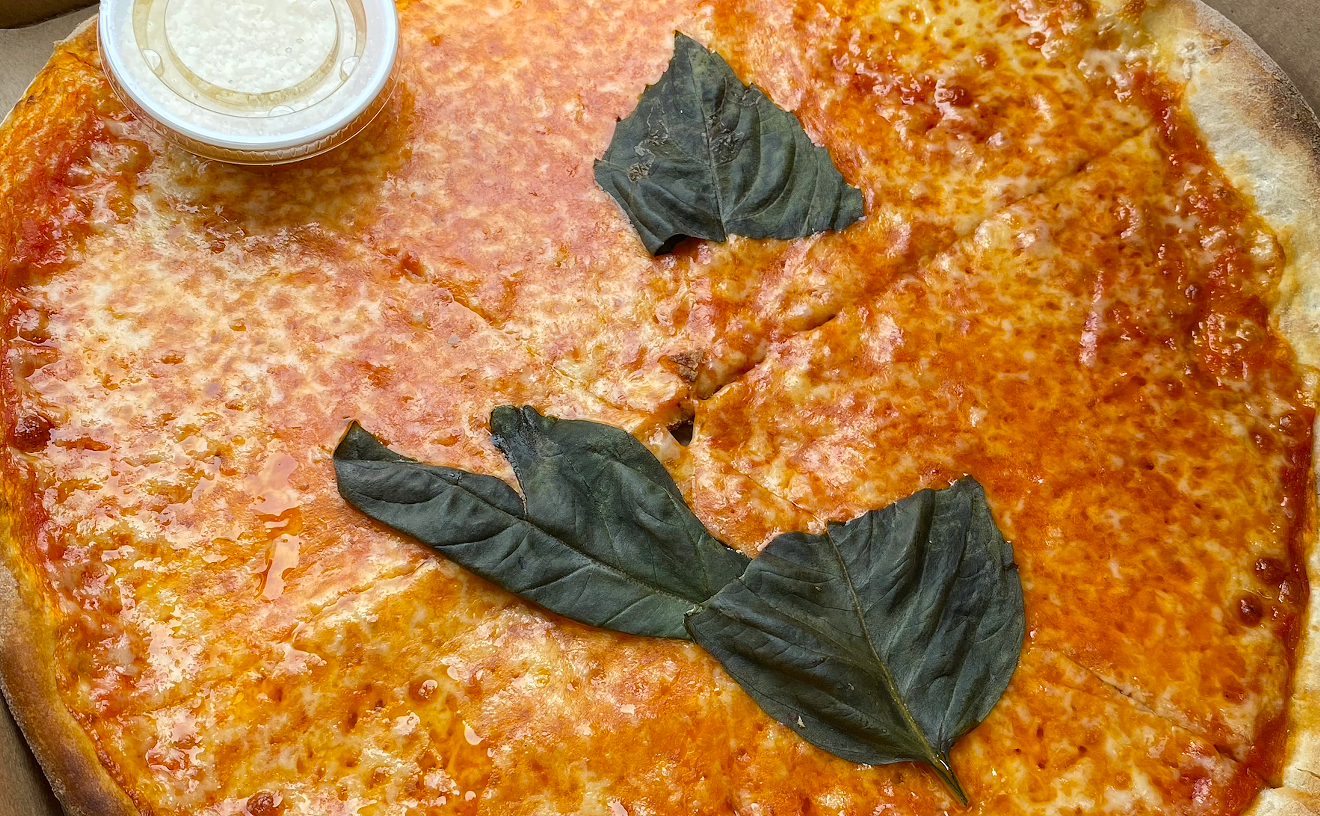Down a one-way street in a sleepy residential neighborhood just beyond the hustle and bustle of downtown West Palm Beach, you'll find something unique and unexpected cooking at this Ethiopian restaurant where chef-owner Lojo Washington is dishing out the heavily spiced fare of her homeland. A tiny woman with sparkling eyes, a shy smile, and a soft voice, she is the opposite of the flavors she creates, which are big, bold, and assertively spicy.
On a quiet evening, Queen of Sheeba's eight-table dining room appears as a beacon of light on an otherwise dim-lit residential street located in the heart of one of the city's historic neighborhoods. Inside, a small open kitchen and quiet dining room reveal homespun charm, a space lit by low-hanging chandeliers that cast a soft amber glow over rustic wood tables set with mismatched glassware and vases of wildflowers.
You'll feel right at home, but the fragrant, spiced air emanating from Washington's stovetop will remind you that you're no longer in South Florida.
Instead, Washington will transport you to the streets of Jimma, the large city in Southwest Ethiopia from which she hails. It was there, before she immigrated to New York from Ethiopia in the early 1980s to pursue a career in nursing, that Washington learned to cook at her mother's side. When she relocated to Florida in 1987, Washington stayed in her chosen field, but always dreamed of working her own kitchen, she says.
Two decades later she opened Queen of Sheeba in 2006; drawing on her mother's recipes and tutelage, the self-made chef began her business as a locals' takeout-only spot that specialized not in her native cuisine, but rather an arsenal of soul-food-style eats like fried fish and chicken.
Several months ago, Washington says she decided to expand into a sit-down restaurant — one that would allow her to serve Ethiopian fare via a more formal, service-oriented establishment.
"I had a vision to do this, to cook Ethiopian food here," says Washington. who celebrated a grand re-opening of the new expanded concept in September. "I thought, Why not take advantage of my heritage and bring something to the area that no one else is doing?"
Today, Washington's menu is utterly unique to the area, not just in terms of concept, but also execution. The food doesn't revolve around the changing seasons. The dishes don't rotate. There are no specials. And the menu doesn't rely much on local sourcing. In fact, the very air is heavy with pungent spices, all of which Washington says she brought to the United States after a recent trip to Ethiopia. That includes red chili powder, cumin, and cardamom from her village in Jimma, and turmeric — a neon orange the color of Cheetos — that has been growing wild in her mother's backyard for decades.
The vegetable-heavy menu will draw its fare share of vegans and vegetarians. It's not fad or fashion here, however, but representative of a country where religion plays a major role in the cuisine. During religious holidays like Ramadan, Muslims fast from sunrise to sunset, says Washington, while the other half of the population — mainly Orthodox Christians — abstain from eating meat or animal products every Wednesday and Friday, and for the 55 days leading up to Ethiopian Easter.
As a result, some of Ethiopia's most popular dishes are made up entirely of legumes. Among the most common are messer (a spicy lentil curry), gomen (sautéed collard greens), and shiro (a simple chickpea purée). If all of this sounds foreign to you, don't worry: The menu does a good job of describing Washington's dishes, listed in Amharic, her country's main language.
On the menu are three appetizers, including sambusa, fried dough filled with spicy ground beef or lentils, and brightened by a garlicky pepper sauce. It's a good way to start before moving on to heartier fare, a familiar dish that can be misleading should you be a newbie to the feast to come.
If you're feeling adventurous, the vegetable sampler will allow you to try several dishes at once, served on a long platter with tight rolls of spongy injera, tart, crepe-like pancakes made from teff flour and form the basis of Ethiopian cuisine. Eating it is joyously communal; such a presentation gives "sharing plates" a whole new meaning, selections served in heaping piles on a single tray and plopped down at the center of a table without side plates or cutlery.
In place of spoons or forks, you'll use injera — its rubbery texture is the perfect tool for scooping and scraping the multicolored mounds of spicy stews, curries, and greens in true Ethiopian fashion.
It's messy and awkward for a first-timer. And these aren't pretty dishes, plated just so or drizzled with some kind of reduction. Rather, most of the food is made up of mushy stewed vegetables in muted shades of green and brown. Just don't let appearances deceive you; the flavors are beautifully complex.
You can start with any wot, a vegetable stew of sorts. A red lentil one — misir — is seasoned with red pepper, garlic, and ginger. Sautéed greens known as gomen feature collards cooked with an Ethiopian-style spiced butter flavored with cardamom, fenugreek, and nigella seeds. The ater kik alicha wot is a mouthful to say but easier to swallow: a mild split pea stew similar to Indian daal. And shiro wot is the most friendly, a bowl of lightly seasoned ground chick peas cooked with onion.
Washington suggests ending the meal with doro wot, as close as Ethiopia comes to a national dish. It's one of only three meat dishes you'll find on the menu at Queen of Sheeba, a plump chicken leg stewed in a dense broth until the meat splits from the bone in tender slivers. It's served in a deep ceramic bowl with a single hardboiled egg, its flesh tinged an angry red-brown from the puddle spiced,
By the end of your meal you'll find that dining at Queen of Sheeba can be a real flavor safari. But — for both newbies and those more friendly with the cuisine — it's absolutely a trip worth taking.
Queen of Sheeba
716 N. Sapodilla Ave., West Palm Beach. Hours are Tuesday through Saturday from 11:30 a.m. to 2:30 p.m. and 5:30 to 9:30 p.m. Call 561-514-0615, or visit queenofsheebawpb.com.
Sambusa $4
Vegetable sampler $15
Doro wot $15
Coffee $3
Nicole Danna is a food writer covering Broward and Palm Beach counties. To get the latest in food and drink news in South Florida, follow her @SoFloNicole or find her latest food pics on the BPB New Times Food & Drink Instagram











